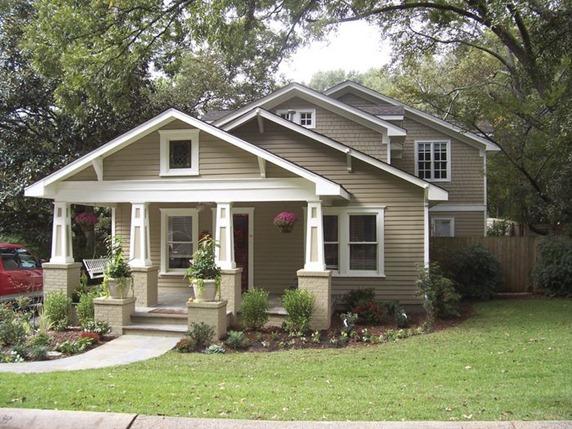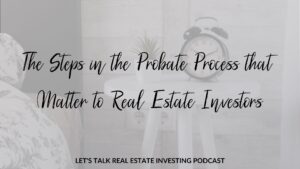Did you ever give any thought to the steps necessary to successfully buy a new home and rent the other? Probably not. However this is a great way to get started in real estate.
It's pretty common that when we buy our first home, we don't have a lot of cash to put down. When we sell that property a few years later we might not have a lot of equity in the property. It might make more sense to sock away cash for the down payment on your new home and keep the other property as a rental.
I have a great article from my friend Satinder Haer of Zillow on 4 ways to successfully buy a new home and rent the other one. As usual, she has written a very insightful guest post.
This Can Be Tricky at Times; 4 Steps to Buy a New Home and Rent the Other
At some point during home ownership, you may decide it’s time to upgrade to a new home and rent out your existing one. While this is a common path into real estate investing, it can also be a tricky financial endeavor. Factors such as home equity, diminished purchasing power and tax implications can impact your ability to successfully own two homes. If you’re considering buying a new home and renting your current one, use these tips to facilitate a smooth transition.
Step 1. Determine Your Purchasing Power
Purchasing a second home is a big financial undertaking, therefore it’s critical to understand how your existing home loan will impact your ability to qualify for a second loan. Lenders typically evaluate factors such as your debt-to-income ratio, monthly income and credit score. Homeowners who haven’t built enough equity in their current home might struggle to obtain lender approval for another home loan because their debt-to-income ratio is too high due to their existing mortgage. Calculate the numbers on your own or meet with a lender and have them evaluate your purchasing power.
Once you have a clear understanding of how much you can afford to spend on a new house you can either get pre-approved for a mortgage or opt to delay the purchase in favor of improving your purchasing power.
Step 2. Calculate Your Rental Income
Your local real estate market will play a large role in determining whether your home will be a profitable rental property. In some areas rental demand is weak or rents are not high enough to generate a positive cash flow for the owner. Research how much similar homes in your area are currently renting for. Is there enough demand for rentals in your area? Would the rent for your home cover the mortgage and maintenance? Would it generate any additional cash?
It’s best to avoid a negative monthly cash flow, even if you anticipate the property’s value will appreciate over time; otherwise you’ll have to dip into your own pocket to cover the difference each month. Crunch the numbers to decide whether retaining your house as a rental property makes financial sense.
Step 3. Research Tax Considerations
Many people are surprised to find out the complicated tax implications of owning a rental property. Some important aspects to consider before renting out your home:
- Rental income is taxable
- Home repairs can have tax consequences
- If you eventually decide to sell your rental home, you may lose the homeowner’s tax benefit
Your rental property may have positive tax benefits but it could also have negative ones; conduct some research about how purchasing a home would impact your financial situation. You may even want to consult a tax attorney, accountant or other certified financial expert so you’re not caught by surprise when tax time rolls around.
Step 4. Find a Home and Renters
After you’ve calculated all the numbers, you might find that buying a new home and renting out your current one is truly a favorable situation. Work with an agent in your area to find a new home and complete any projects you’ve been putting off to spruce up your property for potential renters.
If you decide to self-manage your rental property, put up free rental listings and start looking for tenants as soon as you move out to avoid carrying two mortgages during the vacancy. Prioritize finding tenants with a good rental history, solid income and a clear background check (if you conduct one). Being a landlord can be significant work if your renters are late with payments or otherwise difficult.
Take the time to explore your options and decide if buying a new home and renting your existing one is the correct decision. While it requires a lot of work upfront, it can also be a profitable endeavor if your personal finances and real estate market are conducive to being a landlord. However, being a landlord isn’t for everyone. Don’t make the leap unless the numbers confirm that your home would be a good rental property and you’re ready to take on another home purchase.
If you are not already subscribed to the “Inner Circle”, be sure to do that today so you don’t miss any of the business building tips I have coming your way. I want this year to be your best year ever! And if you enjoyed this article, please share it.










Hii..!!!
I was browsing to get some tips for buying a new home. But I liked this trick of purchasing a new and renting the other.I liked the way in which you have explained everything in detail.
Happy to read this article.
Thumbs up buddy..!!!
I appreciate your honesty in talking about whether you should go forward with renting out a property while owning another one. Like you said, the option isn’t for everyone, so putting a lot of thought into it is essential. However, if you do decide to rent out a property, getting it on real estate listings and finding reliable tenants as fast as possible can maximize your profits. Thanks for the article!
A good property management firm is an important addition to your team.
Great article, thank you for sharing. # 3 is a big one that I don’t think a lot of people consider the implications of right away, so I am glad you brought it up. If I were ever in this position I would definitely use a property management company so they could handle some of the tenant issues that may arise.
Number 3 is very important. I think that’s the most and often overlook step of buyers around.
I think you need a new loan officer. 🙂
I appreciate this information. thank for share
Great Article Sharon. As always.
Timely article. I’m just about to turn the current into a rental and buy a new one. Only thing is, my loan officer seems a bit suspicious that I’m buying the new home for an investment instead of to live in.